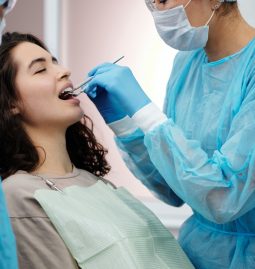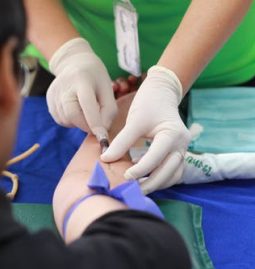Emergencies that occur in the dental area include but are not restricted to tooth decay, gum illness, and chipped teeth. However, routine dental cleaning and preventative measures are the most effective ways to keep your mouth in good health. Knowing what you should do in the event of an emergency could aid in avoiding long-term damage.
Common Dental Emergencies
Are you aware of the most frequently occurring dental emergencies and what you can do to manage them? You can prevent long-term damage and get back healthy teeth and gums with a rapid, immediate response. Below are a few of the most frequent causes of dental emergencies.
Toothache
The pain is not a good indication of anything. It could indicate a variety of issues, which include toothaches or broken teeth. While certain toothaches can be dealt with without seeking medical attention, other problems, like swelling, require immediate attention.
Avoid using common remedies such as aspirin and other pain relievers, as contact with damaged gums could cause tissue burns. Instead, put a compress of cold water on your cheek and look for urgent dental care.
Chipped or Broken Teeth
Did you chew on something a bit too hard? A cracked or chipped tooth could cause discomfort and cause damage to your beautiful smile. Cleanse your mouth with hot water following the application of gauze to the bleeding area. Apply a cool compress to the area of your face closest to the fractured or damaged tooth to ease the swelling and discomfort.
If you seek urgent dental care, your dentist will suggest that you not chew on hard foods, play sports, or do other things that may result in teeth nipping or breaking. Check here to read more information about dental care.
Knocked-Out Tooth
Suppose you have a chipped or chipped tooth. Take the tooth on the crown (the visible part of the mouth) and only rinse the tooth’s root when it’s filthy. Be careful not to scrub and remove any tissue fragments linked to it.
Based on the severity of the injury, you may be able to put the tooth back into its socket. However, be cautious not to force it into the socket. The quicker you can accomplish this (preferably within an hour), the better chances you have of salvaging and fixing a damaged tooth.
Lost Filling or Crown
Crowns and fillings can improve the appearance and functionality of damaged teeth. If they break, immediately treat them to prevent further injury or infection.
Broken Orthodontics
Wires of steel and brackets that braces use are resistant to wear and tear caused by eating, chewing, and speaking. They may break or protrude and poke the cheeks and gums. This can cause discomfort and slow down or reverse tooth alignment and teeth straightening progress.
Abscess
The mouth is a place where infections are dangerous, particularly at the base of the tooth and between teeth and gums. If not treated, they can spread to adjacent teeth and gum tissues and the rest of the body.
Bleeding and Pain After a Tooth Extraction
It’s normal to experience post-operative discomfort and bleed. However, if these signs last longer than one hour, it is recommended to consult a dentist in Hamilton, ON. While you wait, put a gauze pad on the extraction area and take a bite on it to apply pressure. The wrong notions of drinking, rinsing, eating, spitting, sucking, and smoking must be kept out.




